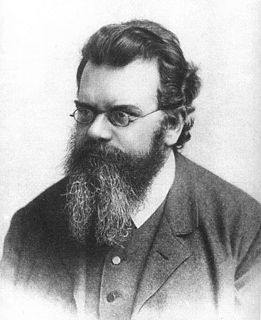A Quote by David E. Cooper
It's as if, for Schopenhauer and perhaps Kant, the mind is there up and running, equipped with its categories and concepts that it then projects or smears, as it were, over what impinges upon it from the outside. This is not the image you find in, for example, Chuang Tzu: minds and nature are inseparably fused in an ever-changing whole of experience that, so to speak, constantly wells up from an indescribable source in a process that Daoists call 'the way' or 'the course'.
Related Quotes
I say that creeds, dogmas, and theologies are inventions of the mind. It is the nature of the mind to make sense out of experience, to reduce the conglomerates of experience to units of comprehension which we call principles, or ideologies, or concepts. Religious experience is dynamic, fluid, effervescent, yeasty. But the mind can't handle these so it has to imprison religious experience in some way, get it bottled up. Then, when the experience quiets down, the mind draws a bead on it and extracts concepts, notions, dogmas, so that religious experience can make sense to the mind.
The Chinese philosopher Chuang-Tzu stated that true empathy requires listening with the whole being: The hearing that is only in the ears is one thing. The hearing of the understanding is another. But the hearing of the spirit is not limited to any one faculty, to the ear, or to the mind. Hence it demands the emptiness of all the faculties. And when the faculties are empty, then the whole being listens. There is then a direct grasp of what is right there before you that can never be heard with the ear or understood with the mind.
Paraphrased: When Chuang Tzu was about to die, his disciples began planning a splendid funeral. However some disciples expressed concern that given a particular arrangement, birds and kites would eat his remains. Chuang Tzu replied, "Well, above ground I shall be eaten by crows and kites, below it by ants and worms. What do you have against birds?
Once Chuang Chou dreamt he was a butterfly, a butterfly flitting and fluttering around, happy with himself and doing as he pleased. He didn't know he was Chuang Chou. Suddenly he woke up and there he was, solid and unmistakeable Chuang Chou. But he didn't know if he was Chuang Chou who had dreamt he was a butterfly, or a butterfly dreaming he was Chuang Chou.
In really good companies, you have to lead. You have to come up with big ideas and express them forcefully. I have always been encouraged -- or sometimes forced -- to confront the very natural fear of being wrong. I was constantly pushed to find out what I really thought and then to speak up. Over time, I came to see that waiting to discover which way the wind was blowing is an excellent way to learn how to be a follower.
You can call it tathata, suchness. 'Suchness' is a Buddhist way of expressing that there is something in you which always remains in its intrinsic nature, never changing. It always remains in its selfsame essence, eternally so. That is your real nature. That which changes is not you, that is mind. That which does not change in you is buddha-mind. You can call it no-mind, you can call it samadhi, satori. It depends upon you; you can give it whatsoever name you want. You can call it christ-consciousness.
When I speak now, my experience in art wells up so articulately that I am surprised even while I am talking. I move around a podium as easily as if it were my living room and although I am keyed up I am not anxious. I feel as if I were doing what I should be doing - the feeling I have when intent in my studio.
To go straight to the deepest depth, I went for Hegel; what unclear thoughtless flow of words I was to find there! My unlucky star led me from Hegel to Schopenhauer . . . Even in Kant there were many things that I could grasp so little that given his general acuity of mind I almost suspected that he was pulling the reader's leg or was even an imposter.































